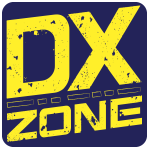Amateur radio (or Ham Radio) is an exciting hobby. Almost everyone knows a family friend or relative who is an Amateur Radio operator. If you speak with them about the hobby they may start using strange words such as Antennas, bands, propagation, standing-wave ratio. Don’t be frightened! You don’t have to have a Ph.D in physics to enjoy the fascinating world of Ham Radio, but you need at least to get your license.
Age or disability is not a barrier to obtaining a license. Many disabled have found Amateur Radio to be a great way to “travel” to exotic places all over the World without leaving their home. Children, even as young as five years old, have successfully become Ham Radio operators!
By international treaty, the amateur service for ham radio in every country is a licensed service. Examinations and licensing types and policies in each country are regulated by the local regulatory authority. (FCC in the US, Ofcom in the UK, Industry Canada, ACMA in Australia etc.)
In this article we will not cover all aspects involved in getting a license in every country, since each national Agency or Ministry administer licensing procedures and polices in different way, if you are interested in further details we recommend you to contact your local Amateur Radio Society to obtain complete information.
Amateur licensing
Amateur radio licenses schemas vary from country to country. In some cases there are several grade of certification, which you can upgrade by passing additional examinations, in other countries there is just one license type and also one exam type only.
Licenses are subject to expiration, in some cases yearly in some other every five or ten years, and need to be re validated, usually without requiring any additional examination.
Licenses are often subject to periodical issue/renew, and are subject to fees.
Exam Preparation
Several local Amateur Radio Associations publish study guides and even organize classes, where you can study and practice for the examinations along to other candidates.
Since examination are different from country to country, you should study using books and publications related to your country examination plans.
There are even several online websites offering exam practice tests, and lots of web sites offering past exam question pools, but as said before you should need to refer to your country Exam program, and the best way is to keep in touch with Ham Radio Clubs near you.
In several countries exams usually consists of several multiple-choice questions about Electronics, Communication Procedure, international rules
Morse Code requirements
In most of the countries worldwide, morse code is no more a requirement to get an amateur radio ticket. But this is not true everywhere.
Morse code proficiency is in some countries still a requirement for some classes of license. At this time, some countries like India, Pakistan, Mexico or in example IARP countries, still requires CW proficiency especially for HF operations. Like for exam preparations, Amateur Radio Clubs organize classes where is possible to learn morse code.
Ham Radio Licensing in the US
There are three classes of Amateur Radio licenses: Technician, General, and Amateur Extra. The entry-level license, Technician, is relatively easy to obtain. This license allows the holder to use a wide range of radio frequencies — everything above 50 MHz. This includes the popular “2-meter” band, satellites, microwave, packet radio, and much more. It is no longer necessary to pass a Morse code test to obtain a license! Removing this barrier, although controversial at the time it was enacted, has allowed the hobby to grow substantially in recent years. Advanced license classes, however, still require demonstration of Morse code proficiency.
The Amateur Radio licensing process is very straightforward. Applicants must pass a multiple-choice written test demonstrating an understanding of FCC rules and competency in basic radio theory. The question pool is widely available on the Internet and is part of most commercial study guides. The test is administered by other Amateur Radio volunteers (called Volunteer Examiners or “VE’s”). Many clubs hold these tests in convenient locations on a monthly basis.
Several commercial study guides are available to help you pass the 35-question written test. One of the best is “Now You’re Talking!” published by the Amateur Radio Relay League (ARRL). The ARRL is the national association for Amateur Radio and most “Hams” are members. The ARRL also publishes a popular pocket guide called the “ARRL Repeater Directory” which lists by geographic area all public Amateur Radio repeaters (machines that retransmit low power signals over a wide area). “Now You’re Talking!” contains the entire test question pool (with answers) and can help you quickly identify your areas of weakness. It usually takes just a few hours of study to prepare for the Technician license exam.
After you pass the written test, the Volunteer Examiners will assist you in mailing your license application to the Federal Communications Commission (FCC) for processing. Few weeks later you will receive your license in the mail with your new call sign. Most Hams find that passing the test and receiving their license is just the beginning — most learning happens after you become licensed!
References:
- How to become a Ham in India
- Amateur Radio Licencing in Australia
- Amateur Radio lincencing in UK
- IARP Countries Licence
- How to become “Radioamatore” in Italy – ARI
- Getting licensed in US – ARRL

